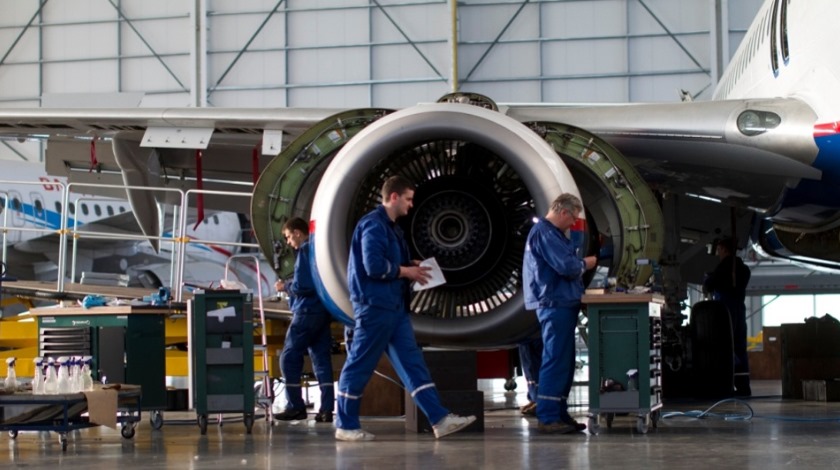Photo: FL Technics
Reading Time: 2 minutesIndonesia is facing challenges in training enough aircraft maintenance engineers and technicians to support rapid growth in the country’s airline fleet.
The director of Batam Polytechnic, Priyono Eko Sanyoto, says the biggest challenge is finding qualified MRO instructors.
“We are limited by the number of qualified instructors. We have recruited only four qualified instructors, and they are retirees,” says Priyono, adding that they worked in the MRO industry and then retired before he persuaded them to come back and teach.
Because of the shortage of qualified instructors, Batam Polytechnic has only 48 students studying aerospace engineering and maintenance, says Priyono.
He says Indonesia’s MRO industry wants to expand outside of Jakarta, Bandung and Surabaya and set up MRO facilities in other parts of the country, but the problem is that the qualified workforce is concentrated in Jakarta and the other two big cities.
“It is hard having training centers outside of Jakarta. Even for Batam, which is relatively developed, I still have what I call my ‘flying instructors.’ [Some of our teaching staff] stay in Batam maybe two days at a time and then they fly back to their homes in Jakarta, Surabaya or Bandung. We fly them in to teach, but it is expensive.”
Another issue is making sure the teaching staff have adequate, up-to-date skills. Batam Polytechnic will send some of the teaching staff to Europe next year to train in France or Germany, says Priyono. The school has connections with Europe’s aerospace industry, he says, without elaborating.
In the past, Indonesia has not had problems attracting young people to work in the MRO industry, because jobs are hard to come by, but Priyono says economic growth means it is now getting harder. “Young people are more interested in information technology rather than aircraft maintenance courses,” he says.
To attract more young people to the industry, “we need to make aircraft maintenance more ‘sexy,’” says Leo van Rijn, Air France Industries-KLM Engineering & Maintenance, vice president for aircraft maintenance. That means adding more technology-related content to the training programs.
“Show the students the simulation tools. The polytechnics need to invest in simulation tools, software applications and virtual-reality training tools. It is extremely important for us to have enough aircraft mechanics coming into this industry. Make it sexier,” he says.

